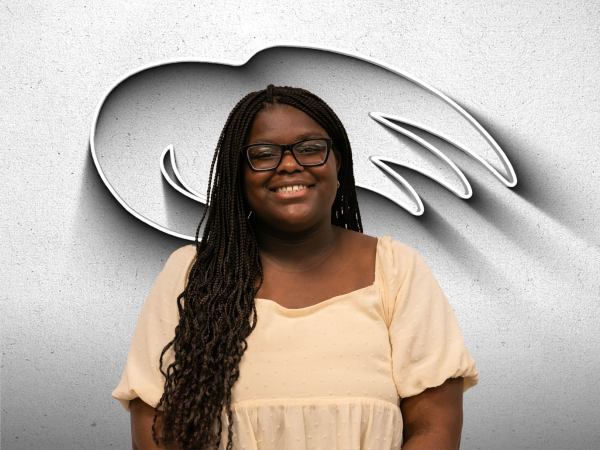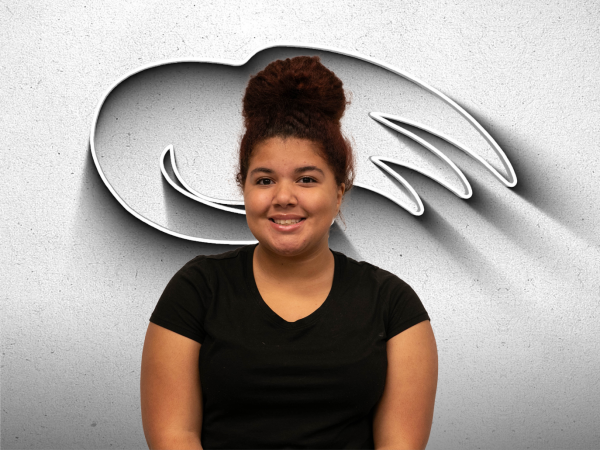Every opinion is subjective. For instance, some may believe that Rome is the most beautiful city in the world. While others could disagree and argue that, the title belongs to Paris. Similarly some people may argue and say that online classes are way more effective than classes that take place in-person.
This subjectiveness can even be extended to an increasingly growing debate. Should audiobooks even be considered reading?
With an increase in popularity of books, and specifically audiobooks, readers have proposed the question of, should audiobooks even be considered reading?
While some people tend to believe that audiobooks are the same as having a basic conversation, or listening to a podcast. Others argue that listening to audiobooks still require engagement and can be great for multitasking. But what do people at our school tend to think?
One of the main arguments presented against audiobooks as “real reading” is the fact that reading requires a borderline engagement. You should always be following along with the book imaging the plot and setting the author has developed.
Isaiah Byrd (11) gives more insight on this.
“When I physically read a book, I’m usually more engaged. Because doing it all0ws me to follow along and imagine the story my own way,” Byrd said.
Another key argument stated, when people talk about whether or not audiobooks should belong in the category of reading, is that audiobooks lack the true education that real books hold. When you are reading information you are able to learn new vocabulary, and process new information.
However when listening to an audiobook you tend to lose focus, and while you are hearing the new vocabulary you might not actually be processing the new information you’ve learned.
Kenzie Firebaugh (12) thinks audiobooks may not be the best source.
“Audiobooks lack a sense of education, you don’t learn new words and you lose focus in audiobooks, while focus is gained through natural reading,” Firebaugh said.
But what about the otherside to this argument? While it may be popular to initially believe that audiobooks aren’t reading, some people hold a different viewpoint. One being that when you read audiobooks, not only are you able to retain information but you are also able to multitask and do other things while you read as well.
When speaking to Nikki Playle, school librarian, she shared her initial experience when first trying audiobooks.
“I feel a lot of kids especially will tell me they can’t really do audio books, and that was a problem that I had in the beginning but not anymore because I can multitask,” Playle said.
By being able to train your brain to pay attention to the audiobooks, while also getting things like homework, and other daily activities done. You can knock out two things at once.
Another key point that has been presented within these arguments is that audiobooks genuinely help people who have always had trouble reading. For some people reading the words on the page can come off as tricky and difficult.
But a great substitute for them can be these audiobooks, since they are still able to experience the same story in a more effective way for them.
Viggo Vining (12), expressed his experience with audiobooks and how they have helped him enjoy reading more.
“I’ve always had trouble reading physical books, and audiobooks have helped a lot,” Vining said.
Additionally another argument that is made, over this topic is that audiobooks can provide a new experience for the reader when it comes to imagining and picturing the book. While it can be said that physically reading the book provides you with an unmatched experience, audiobooks consist of a special experience within itself too.
For books with dual points of views, it may be harder for a reader to imagine the two characters as different people when physically reading the book as they are reading it with their own voices. But with audiobooks you are able to experience the words coming from two different individuals.
While talking to English teacher, Jennifer Bryan, she talked about the experience when it came to listening to audiobooks and specifically dual POV audiobooks.
“One of the best audiobooks I’ve read consisted of two main characters. One male and one female,” Bryan said. “While listening to the book I was able to hear the voices play off of each other which made the story more authentic.”
Overall, reading a book physically can help the reader stay engaged in the story, picture the setting and characters with their own perspective while also helping them learn and process new information.
But audiobooks can help readers who have struggled with physical books in the past, increase connection within the story. And also provide people with the ability to multitask while reading the books they love.
But after reading about this sparking debate. What do you think? Are you more convinced to try audiobooks? Or are you set in stone about physical reading?




